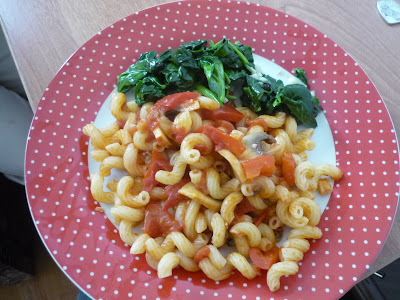In a few hours I'm jetting off to exotic -- and more importantly warm -- locales, where I plan to spend the next two weeks far away from the Interwebs, so this likely is my last blog post of the year. After the wicked cold of Astana in the past few weeks and a busy end to the semester, a week or two of sunshine, good books, and adventures couldn't be a more fitting end to a year that has been memorably joyous, despite the challenges that came with it.
The funny thing is, as much as I love unexpected adventures and brave, new experiences, I love the predictability and steadiness of that which we know and the people who know us best. Over the last few days I've been feeling that aching melancholia that comes with being far away from family and friends at the holidays, exasperated by the slow departure of friends and colleagues around me, and I wonder if I made the right decision by not going home. Though one look at ticket prices reassures me that I did, I still can't help but feel a pang of regret thinking of all the mundane but lovely activities I am missing out on over the holidays: eating a burrito the size of my head on a sunny December Texas day, enjoying a beer (or two) on a snowy Wisconsin evening amidst green-and-gold mania, watching a Law and Order marathon on a Sunday afternoon, eating samosas for breakfast and dosas for dinner, settling down on the couch to watch A Charlie Brown Christmas with a cup of hot chocolate, and, most importantly, being with the people in my life who make the mundane somewhat extraordinary.
In the past few months, I've found out that a close college friend and the parent of another have been diagnosed with cancer. I know I cannot speak as if I were in their position -- or the position of their loved ones -- but the news was a bitter reminder that the beauty and, yet, sadness of human life is its fleeting nature. Still, I remain optimistic, not because I don't believe that tragedy and sadness will not strike my life when I least expect it, but because I see people like my friend facing such an unfair lot in life with hope. I'm rarely overly sentimental, but if there's one holiday wish I have for you all, it is this: be happy. Find the joy in your life, be it in a book, in a trip somewhere exotic, or at home watching Law and Order. And, because Kurt Vonnegut will always be better at saying things than I will, "I urge you to please notice when you are happy, and exclaim or murmur or think at some point, 'If this isn't nice, I don't know what is.'"
Happy Holidays -- and see you in 2013!
The funny thing is, as much as I love unexpected adventures and brave, new experiences, I love the predictability and steadiness of that which we know and the people who know us best. Over the last few days I've been feeling that aching melancholia that comes with being far away from family and friends at the holidays, exasperated by the slow departure of friends and colleagues around me, and I wonder if I made the right decision by not going home. Though one look at ticket prices reassures me that I did, I still can't help but feel a pang of regret thinking of all the mundane but lovely activities I am missing out on over the holidays: eating a burrito the size of my head on a sunny December Texas day, enjoying a beer (or two) on a snowy Wisconsin evening amidst green-and-gold mania, watching a Law and Order marathon on a Sunday afternoon, eating samosas for breakfast and dosas for dinner, settling down on the couch to watch A Charlie Brown Christmas with a cup of hot chocolate, and, most importantly, being with the people in my life who make the mundane somewhat extraordinary.
In the past few months, I've found out that a close college friend and the parent of another have been diagnosed with cancer. I know I cannot speak as if I were in their position -- or the position of their loved ones -- but the news was a bitter reminder that the beauty and, yet, sadness of human life is its fleeting nature. Still, I remain optimistic, not because I don't believe that tragedy and sadness will not strike my life when I least expect it, but because I see people like my friend facing such an unfair lot in life with hope. I'm rarely overly sentimental, but if there's one holiday wish I have for you all, it is this: be happy. Find the joy in your life, be it in a book, in a trip somewhere exotic, or at home watching Law and Order. And, because Kurt Vonnegut will always be better at saying things than I will, "I urge you to please notice when you are happy, and exclaim or murmur or think at some point, 'If this isn't nice, I don't know what is.'"
Happy Holidays -- and see you in 2013!



















